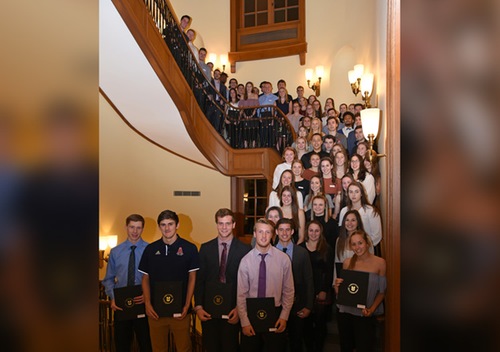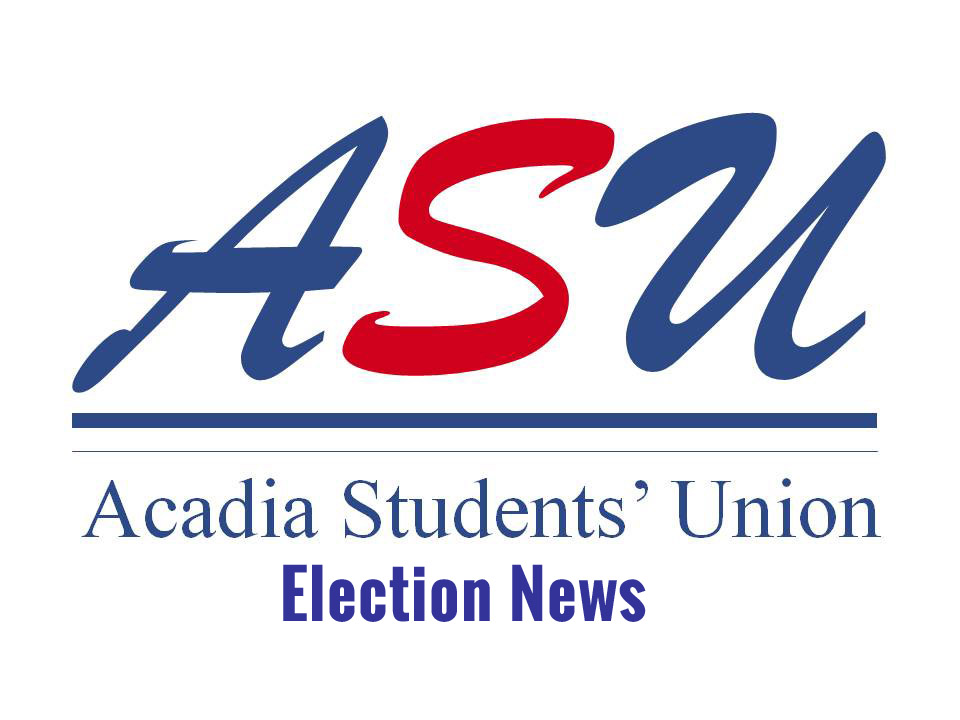In advance of the By-Law Revision Consultation, the Acadia Students’ Union released the finalized drafts of By-Law One (Positions), By-Law Two (Committees), and By-Law Three (Elections) prepared by the ASU lawyer, Tom McEwen. This is the final consultation opportunity, outside of SRC meetings, before the by-laws are adopted in early December 2018.
Read the by-laws and make your own comments here.
By-Law Review Process
The By-Law Review process was started in the final months of the 2018 Winter Semester after the tumultuous 2018 General Election. Student representatives at the time stated that the desire of the review was to ensure that our by-laws are clear, concise and effective for the organization moving forward and to ensure that the documents reflect the values and mission of the Acadia Students’ Union, including diversity and inclusiveness.
Funded with a $10,000 budget from the ASU Wellness Fund, the By-Law Revision Project was pitched as an opportunity to fix the by-laws, eliminate contradictory language and reduce redundancy in an effort to make it easier for future student leaders to understand and interpret.
The project was pitched to include substantial student consultation to centre around the size and composition of Council and the opportunities to increase diversity and inclusivity within the Acadia Students’ Union. These consultations were held in early April 2018 with handful of students and Members of Council in attendance. Drafts were circulated during the summer among Members of Council; however, the first publicly released documents were released on November 8th, 2018, hours before the final consultation.
Major Proposed Changes to Council Composition
Two Councillors and the Student Board of Governors Representative would be eliminated, shrinking Council to sixteen (16) voting representatives. The Executive Board would be maintained at its present size and composition.
The VP Finance and Operations would be elected in the General Election along with the other Executive Team members. Currently, the VP Finance and Operations is hired by the outgoing Hiring Committee to ensure that the position is filled by someone with a strong skillset and background to be successful in the role.
The Diversity and Inclusion Representative (now known as the Equity Officer) would be hired by the Hiring Committee to ensure that it can be filled by an individual who represents a minority group on campus.
Major Changes to Committees
The Presidential Affairs Committee and the SUB Renewal Committee would be eliminated entirely, and the Student Funding Committee would be merged into the Financial Affairs Committee. There is also no mention of the Accessibility Advisory Committee which was constituted in 2017/2018 as a temporary ad hoc committee.
The Student Life Committee would lose its authority to ratify campus club to the VP Student Life.
The Campus Representation Committee would be renamed the Diversity and Inclusion Committee to reflect the name change of the current Equity Officer and the President would be added to the committee.
The Environmental Sustainability Committee membership would be amended to add two additional Members of council and to eliminate specific voting membership for representatives of specific campus clubs, including the ESST Club, Outdoors Acadia, the Acadia fork and Farm, the Environmental Science Students’ Association, the Fletcher Geology Club and Slow Food Acadia.
The Chairperson would be reduced to a non-voting position on the Review Board, Governance Committee and the Hiring Committee.
Major Changes to Elections
The campaign period would be shortened to ten (10) days, including five (5) days for voting. The nomination period would also begin on February 1st and end on the Friday two weeks before the Winter Study Break. Under these proposed rules, the 2019 General Election would commence and end on the same day (Friday, February 1st, 2019).
The by-law would create rules of fair play and community standards that are aimed at ensuring that elections remain fair and free for all candidates and accessible for all voters. These guidelines would set the standard for candidates and their supports to maintain throughout the campaign.
The complaint process would change to eliminate the disciplinary power of the Chief Returning Officer (CRO) who would be required to present their recommendations to the Elections Committee who would decide on disciplinary action against any candidate, side or election official. They would also entertain appeals of their decisions.
The referendum section would be consolidated into By-Law Three (Elections). Currently, a petition of 5-10% of the student body or a vote of Council could initiate a referendum; however, the proposal would allow only Council-initiated referenda. The proposal would also grant significant authority to the Elections Committee to set spending limits and campaign restrictions.
Oliver Jacob is a third year History and Politics student and News Editor of The Athenaeum and former Chairperson of SRC





